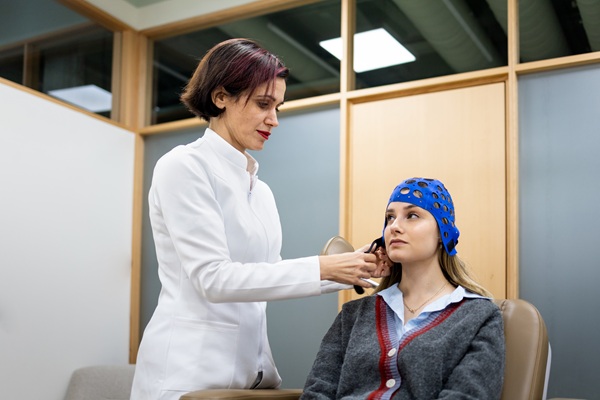When a Psychiatrist May Recommend Ketamine Therapy

Ketamine therapy is an alternative treatment for depression. Most patients may be used to taking SSRI (selective serotonin reuptake inhibitors) for their condition. Some do not respond the same way. Instead, they experience side effects. That is why your psychiatrist may suggest another treatment. If you want to know when your psychiatrist may suggest ketamine therapy, here are the details.
When ketamine therapy can help
A psychiatrist will check if the patient is right for ketamine therapy. The patient would have already tried various combinations of dosages and medications. Even so, the patient’s symptoms have not improved. This therapy also fits as a treatment alternative if the patient has gone through the other treatments without any success.
Traditional antidepressants take about four to six weeks to take effect. A suicidal patient does not have this much time. That is why ketamine therapy is available in the emergency room. The suicidal patient can take this therapy and the suicidal thoughts will go away in 90 minutes.
Ketamine triggers the production of glutamate in the brain. Glutamate encourages the repair of damaged nerve connections. It also forms new nerve connections. Creating new nerve pathways in the brain allows the patient to have more positive behaviors and thoughts.
What happens
Doctors used ketamine as an anesthetic. Another one of its uses is for treating post-traumatic stress disorder, depression, and anxiety. It relaxes the patient’s brain. The doctor will give the ketamine treatment in a private, comfortable room.
This treatment will last for two hours. The patient will end up sleepy after. A friend or family member can drive the patient home. The side effects of ketamine therapy are temporary. The patient will wake up with a more improved mood.
What this alternative therapy can do
This therapy can help improve treatment-resistant depression. It can help with chronic suicidal thoughts as well. A psychiatrist can also recommend ketamine therapy for chronic pain and anxiety disorders. Patients with bipolar disorder and obsessive-compulsive disorder can also have this therapy.
The techniques
A patient can receive ketamine in the form most absorbable by the body. The form of ketamine therapy may depend on the price and the treatment setting. The patient can get nasal ketamine from the psychiatrist’s clinic. The doctor will need to check for side effects two hours after the treatment.
Ketamine infusions are available in a clinic or hospital setting. This therapy will need an intravenous route. The treatment will last for about 40 minutes. A patient can also have ketamine therapy in the form of ketamine lozenges. The doctor can give this form of therapy in a clinic or at home.
An intramuscular shot of ketamine is also possible. The doctor will need to inject in one of the larger muscles of the body. The arm or thigh are ideal injection spots. This treatment will last for about 40 minutes in a clinic or hospital setting.
Patients can regain mental and physical health with ketamine therapy
Treatment-resistant depression can cause more hopelessness in affected patients and their families. Psychiatrists can recommend ketamine therapy for faster, more effective results. This therapy can come in many forms. A patient can discuss the most absorbable one with the attending psychiatrist. That way, the patient can get the most out of it.
Get more information about Future Psych Solutions in Columbia at https://futurepsychsolutions.com.
Check out what others are saying about our services on Yelp: Ketamine Therapy in Columbia, SC.
Recent Posts
Mental health plays a critical role in overall well-being, influencing thought patterns, emotional stability, and behavior. For those experiencing persistent challenges, a formal diagnosis can provide clarity and a structured approach to healing. With guidance from a psychiatrist, individuals can better understand their condition and begin a path toward long-term mental wellness.A mental health diagnosis…
Are you looking for a TMS doctor? A TMS doctor is one that offers Transcranial magnetic stimulation to treat patients with major depressive disorder, which is also called MDD or clinical depression. Every TMS doctor utilizes their own method of treatment and many practices under other titles such as that of a psychiatrist. Learning more…
Post-traumatic stress disorder (PTSD) is a mental health condition that can develop after experiencing or witnessing a traumatic event. PTSD treatment aims to reduce symptoms and help people function better in their daily lives. It also focuses on improving their overall health and well-being. PTSD often causes anxiety, flashbacks, and emotional distress, making effective treatment…
Everyone experiences occasional anxiety, but an anxiety disorder involves persistent, excessive worry and physical symptoms that can disrupt daily routines, relationships, and overall well-being. If left untreated, these symptoms can intensify, impacting mental and physical health. Seeking help from a psychiatrist can be a significant first step toward effectively managing anxiety disorder symptoms and getting…


